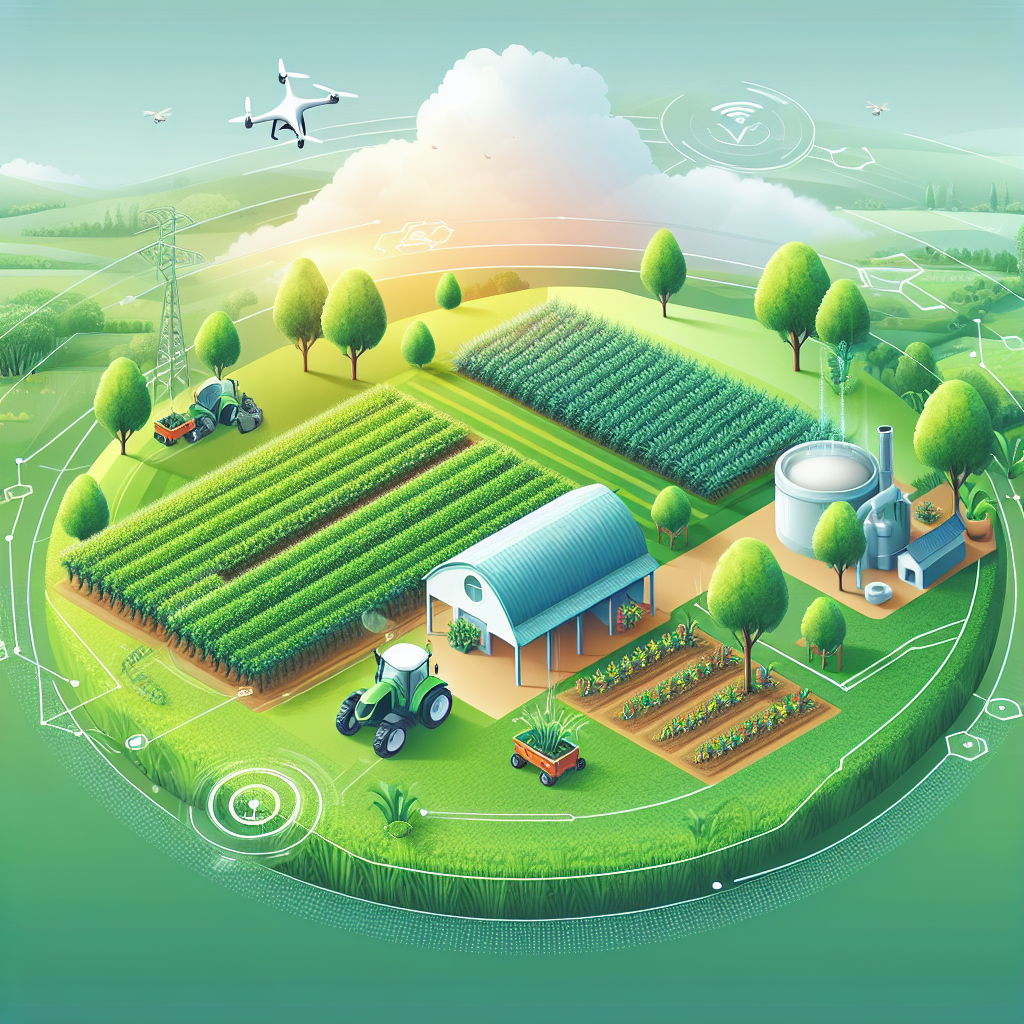The Impact of AI on Agritourism
Agritourism, a form of tourism that involves visiting a working farm or agricultural operation, has been growing in popularity in recent years. This trend is driven by a desire for authentic and hands-on experiences, as well as a growing interest in sustainable and locally sourced food. With the rise of artificial intelligence (AI) technologies, agritourism operators are finding new ways to enhance the visitor experience and improve the efficiency of their operations.
AI is revolutionizing the agritourism industry in several ways. From automated farm equipment to predictive analytics for crop management, AI is helping agritourism operators increase productivity, reduce costs, and provide a more personalized experience for visitors. In this article, we will explore the impact of AI on agritourism and how these technologies are shaping the future of the industry.
Automated Farm Equipment
One of the most significant impacts of AI on agritourism is the development of automated farm equipment. AI-powered robots and drones can perform a variety of tasks on the farm, from planting and watering crops to monitoring soil quality and detecting pests. These technologies not only help farmers increase efficiency and reduce labor costs but also provide visitors with a unique and educational experience.
For example, visitors to a farm equipped with AI-powered robots can witness firsthand how these machines plant and harvest crops with precision and accuracy. They can also learn about the benefits of sustainable farming practices, such as reduced pesticide use and water conservation, which are made possible by AI technologies.
Predictive Analytics for Crop Management
Another important aspect of AI in agritourism is the use of predictive analytics for crop management. AI algorithms can analyze data from sensors, weather forecasts, and historical crop yields to predict the optimal time for planting, watering, and harvesting crops. This helps farmers maximize their yields and minimize the risk of crop failure, while also providing visitors with a deeper understanding of the farming process.
Visitors to a farm that uses AI for crop management can learn about the science behind agriculture and how data-driven decisions can lead to more sustainable and efficient farming practices. They can also see firsthand how AI technologies are transforming the way crops are grown and harvested, from precision planting to robotic harvesting.
Personalized Visitor Experiences
AI is also being used to provide personalized experiences for agritourism visitors. By analyzing visitor data, such as preferences, interests, and past experiences, AI algorithms can recommend customized activities, tours, and food options that cater to individual preferences. This not only enhances the visitor experience but also helps agritourism operators increase customer satisfaction and loyalty.
For instance, a farm that uses AI for personalized visitor experiences can create tailored itineraries for each guest, based on their interests and dietary restrictions. Visitors can enjoy a farm-to-table meal made with ingredients grown on the farm, participate in hands-on activities like cooking classes or animal feeding, and learn about the history and culture of the farm through interactive exhibits and guided tours.
FAQs
1. How is AI being used in agritourism?
AI is being used in agritourism to automate farm equipment, manage crops more efficiently, and provide personalized visitor experiences. AI-powered robots and drones can perform a variety of tasks on the farm, such as planting, watering, and harvesting crops, while predictive analytics can help farmers optimize crop management. AI algorithms can also analyze visitor data to recommend customized activities, tours, and food options that cater to individual preferences.
2. What are the benefits of AI in agritourism?
The benefits of AI in agritourism include increased productivity, reduced costs, and a more personalized visitor experience. AI technologies help farmers automate tasks, optimize crop management, and improve efficiency, leading to higher yields and lower labor costs. AI also helps agritourism operators provide visitors with unique and educational experiences that cater to their interests and preferences, leading to increased customer satisfaction and loyalty.
3. How can agritourism operators implement AI technologies?
Agritourism operators can implement AI technologies by investing in AI-powered farm equipment, sensors, and analytics software. They can also partner with AI companies and research institutions to develop customized solutions that meet their specific needs and objectives. Agritourism operators should also educate their staff and visitors about the benefits of AI technologies and how they are transforming the industry.
4. What is the future of AI in agritourism?
The future of AI in agritourism is bright, with new developments and applications emerging every day. As AI technologies continue to evolve, agritourism operators can expect to see even greater improvements in productivity, efficiency, and visitor satisfaction. AI-powered robots and drones will become more advanced and versatile, while predictive analytics will provide farmers with even more accurate and timely insights into crop management. Personalized visitor experiences will also become more sophisticated, with AI algorithms recommending tailored activities, tours, and food options that cater to individual preferences.
In conclusion, AI is revolutionizing the agritourism industry by automating farm equipment, optimizing crop management, and providing personalized visitor experiences. These technologies are helping agritourism operators increase productivity, reduce costs, and enhance the overall visitor experience. As AI continues to evolve, agritourism operators can expect to see even greater benefits in the future, making AI an essential tool for the success and sustainability of the industry.

